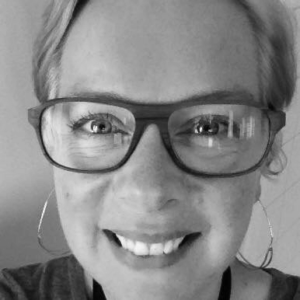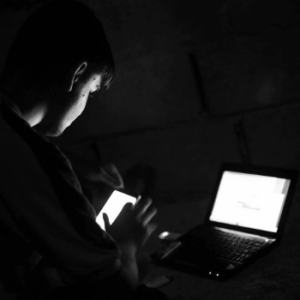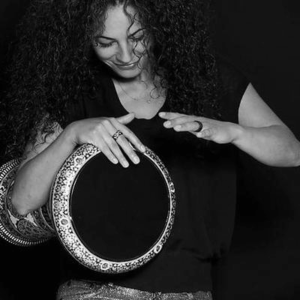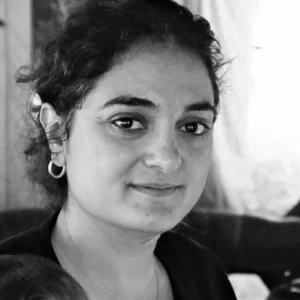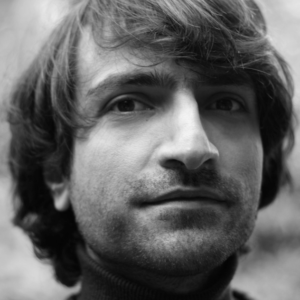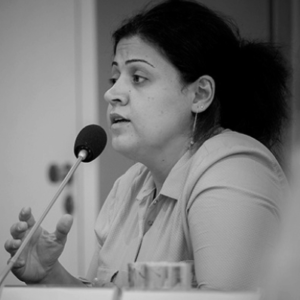

The Syrian Peace Action Centre (SPACE) welcomes you to the fourth edition of its annual conference The Question of Syria.
The Question of Syria 2018 – Doomed by Hope takes its cue from the famous last line of Saadallah Wannous’ speech on World Theater Day (1996): “we are doomed by hope, and what happens today cannot be the end of history.”
During two days of talks, panel discussions and short film screenings, activists, academics, artists and writers will share their reflections on everyday hope as practiced and lived by ordinary people with focus on Syrians and Palestinians.
Talks & Discussions
Talks and discussions by activists, academics, artists and writers on everyday hope as practiced and lived by ordinary people. 11-12 Oct., Litterturhuset.
Reading Circle
A reading circle on solidarity, its meaning and contradictions. 12 Oct., Litteraturhuset
Music
Free concert with Percussionist Simona Abdallah. 12 Oct., Melahuset
PROGRAM
Oct. 11
Just as the Syrian revolution was a triumph of hope over fear, so is the challenge before Syrians today to sustain hope in the face of violence and loss. What can the past eight years teach us about the journey of hope that Syrians have travelled and where this struggle might be heading from here? Wendy Pearlman will probe these questions by sharing selections from interviews that she has conducted with more than 400 displaced Syrians across the Middle East and Europe from 2012 to 2018. Among these will be testimonials from her book, We Crossed a Bridge and It Trembled: Voices from Syria, which chronicles the origins and evolution of the Syrian conflict exclusively through the words of ordinary people who have lived and been transformed by its unfolding.
20min Nedjma, Litteraturhuset
Coming of age during the “peace process,” my trajectory was shaped by the Oslo agreements. Twenty-five years ago, my generation was promised freedom through statehood. What it received was colonialism through peace. Today Gaza is an open-air prison that is on the brink of a humanitarian disaster. Trigger-happy Israeli soldiers shoot and kill with impunity. Palestinians have two governments and no state. Palestinian society is shattered, fragmented, and divided. This trajectory marked by false promises raises a nagging question: where does one look for hope while hopeless? With time, I have found it in the least obvious of places: in being a problem, rather than looking for a solution; in the past, rather than in the future.
20min Nedjma, Litteraturhuset
In the novel “A Personal Matter”, by the Japanese writer Kenzaburō Ōe, the school teacher called Bird awaits the birth of his baby. His long-awaited son is then born with a brain hernia. Hiroshima and Nagasaki are disturbingly present. The father expects the imminent death of his son who will survive and live long as a “sick hope”. The bandages on his son’s head reminds him of Apollinaire when the latter was severely wounded in WWI. Bird does not fulfill his dream of traveling to Africa. In the end of the novel he’s given a dictionary as a present. He reads “Hope” in the dedication, and wishes it were “Patience”. I’ll talk about the other side of hope: Patience. Prophet Job is said to be born in Hauran, where the Syrian uprising started in 2011. Syrians have been punished since. Has this ongoing punishment led to absurdity or to God? How’s their blasphemy? Have they stopped their unanswered calls and prayers? Does the meaning lurk in the waiting?
20min Nedjma, Litteraturhuset
After their individual talks, Golan Haji, Nadim Khoury and Wendy Pearlman will jointly discuss hope, its meaning and future for Syrians and Palestinians. Rana Issa will moderate the discussion.
40min Nedjma, Litteraturhuset
In the grand picture, the Syrian story is not one of hope. But many Syrians proved to be agents of hope, in the best and the worst of times. Eastern Ghouta stands out as an embodiment of both hope and despair. The Assad regime besieged Eastern Ghouta for more than five years deploying starvation, denial of healthcare, indiscriminate bombing and use of chemical weapons as strategies to defeat the people and achieve a hollowed military ‘success’. Earlier this year, the regime, supported by Russia, recaptured Ghouta; tens of thousands were forcibly displaced to Northern Syria while others remained, dispossessed and uncertain of what future awaits them. Against all odds, many in Eastern Ghouta continued to resist and create until the last moments, under siege and bombs. Women fought for their space in a militarized and male-dominated public sphere; resisting, creating and mobilizing in social, political and humanitarian fields in the face of oppressive local armed groups and the siege imposed by the regime. Young students trapped in Eastern Ghouta carried their dreams forward by turning to online universities.
This is the story of Ghouta: Everyday acts of resistance and creativity carved out hope in the midst of the bleakest picture. A plethora of practices, hopes and dreams; many are shattered, but the uncompromising desire to live continues.
In this session we pay tribute to Ghouta and learn how its people managed to cultivate hope. Lubna Kanawati will talk about her personal experience when she lived in Ghouta and her work as part of the organization Women Now for Development. Mahmoud Bwedany, a 21-year-old activist and student from Douma, was one of the last people to be forcibly displaced from Eastern Ghouta. Mahmoud has an incredible story to tell; a story of activism, perseverance and hope. Zoé Beau (co-founder of the Buzuruna Juzuruna organic farm collective) will share the story of cross-border hope and solidarity by Syrian refugee farmers in Beqaa Valley in Lebanon.
60min Nedjma, Litteraturhuset
Oct. 12
Drawing on the Palestinian and Syrian experiences, the reading circle aims to discuss some of the following questions: How does solidarity manifest itself in these two interconnected contexts? In an increasingly connected world, what shared values and practices underpin our collective struggles today? How can we initiate an internationalist, inter-sectional, and horizontal solidarity movement extending from the people to the people? What concrete actions can we take to revive the space for a genuine, internationalist solidarity thinking and practice against the tendency of selective and competitive solidarity? Find our more on the Facebook event.
90min Kjelleren
Stranger times is an attitude to the contemporary that attends to how strangers stay alive outside their usual habitats. It reflects on the figure of the stranger in relation to the politics and temporalities of the contemporary. I define the stranger as a person who is paradoxically liberated yet fixed into tribal and national structures. I take Syrian strangers as an extreme case of this relation to the contemporary that I term stranger times. Like many other places around the world, Syrians became strangers under pressure from processes of acceleration of production and the eternalization of tyrannical modes of rule. For my arguments, I select Syrian films and textual narratives that depict the stranger in various contexts. As I trace the figure of the stranger in 40 years of Syrian cultural production, I explore how the figure of the stranger apprehends, constructs and organizes the contemporary. Arriving upon inhabited places, the stranger has a past that is unpredictable and unknown to her interlocutors. She intrudes, is out of synch, like a freshly born infant that has not yet learned the times of day. The strangers that I examine survive through intrusions into a market and political sphere that has no place for them. Some translate, others communicate by other means. All accelerate their step, and seek to acquire a new past and a new language that can root them in this new environment.
60min Kjelleren, Litteraturhuset
SPACE and Mela invite you to a special concert with the internationally-acclaimed percussionist Simona Abdallah concluding The Question of Syria – Doomed by Hope conference. Simona plays Arabic percussion, primarily the Darbuka, a goblet-shaped drum. She fuses her ancestral Arabic rhythms with House, Electronica and World music. The Darbuka is considered solely a masculine instrument, and is traditionally always played by men. That makes Simona the first female musician from an Arabic background to break the tradition with an internationally acclaimed success to follow. Join us to listen to Simona’s rhythms as well as reflections on her experience in a short talk before the concert! Invite your friends on Facebook!
45min Melahuset
SPEAKERS
The Question of Syria 2018 is sponsored by the Fritt Ord Foundation


